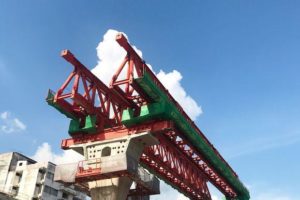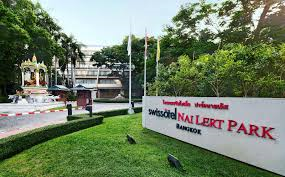 Bangkok’s Mass transit powers property market
Bangkok’s Mass transit powers property market
26 December 2018
Mass transit lines continue to drive Bangkok’s property market and change the way people work, live and play.
Bangkok now has 137.5km of mass transit lines with 98 stations.
In 2018, the main news was the opening of the 11km light green extension to Kheha station in Samut Prakan.
Mass transit is still one of the most important factors affecting urban development in Bangkok ever since the opening of the first line in 1999. It has changed all sectors of the property market, including residential, retail, office and hotel and will continue to do so.
Some of the key lessons we have learned so far are that being close to a line is not good enough, what matters is proximity to a station.
Another key lesson is that not every line and station is equal. The locations with the highest demand and rents have been on the most used lines and next to the busiest stations.
The BTS Green Line carries almost 750,000 passengers per weekday compared to 45,000 of the MRT Purple Line.
Looking forward, there will be no new lines opening in 2019 but property owners and investors will be looking forward to 2020 when the MRT Blue Line extension, SRT Light Red Line and SRT Dark Red Line, as well as the BTS Green Line Mor Chit-Khu Khot extension, are all scheduled to open, adding 88km and 48 stations.
Construction work has also begun on the Orange, Yellow, Pink and Gold lines which will add another 88.2km and 73 stations by 2024.
Based on current plans, Bangkok could have 466km of mass transit lines with 286 stations by 2030. This is comparable to London, of which underground network has 270 stations and 400km of tracks today after the first line opened 155 years ago, or in 1863.
CBRE predicts that the passengers for each line and passengers using each station along the line will continue to vary widely and that the lines and stations with the most passengers will be the most sought-after office, residential, retail and hotel locations.
The importance of interchange stations — those which connect one or more lines — will continue to grow as these locations will offer the best connectivity with the rest of Bangkok. This has already been demonstrated by the popularity, rents and prices at existing key interchange stations such as the Sukhumvit Asoke junction.
On a final positive note, Bangkok’s development of mass transit is way ahead of its peer group of regional cities such as Jakarta, Manila, Kuala Lumpur and Ho Chi Minh City, making Bangkok a more competitive business location and attractive destination for both residential investors and tourists.
James Pitchon is an executive director and head of Research and Consulting, CBRE Thailand. He can be reached at bangkok@cbre.co.th Facebook: CBREThailand LinkedIn: CBRE Thailand Line@: CBRE Thailand Twitter: @CBREThailand website: http://www.cbre.co.th/
Source: https://www.bangkokpost.com/business/news/1601126/mass-transit-powers-property-market


